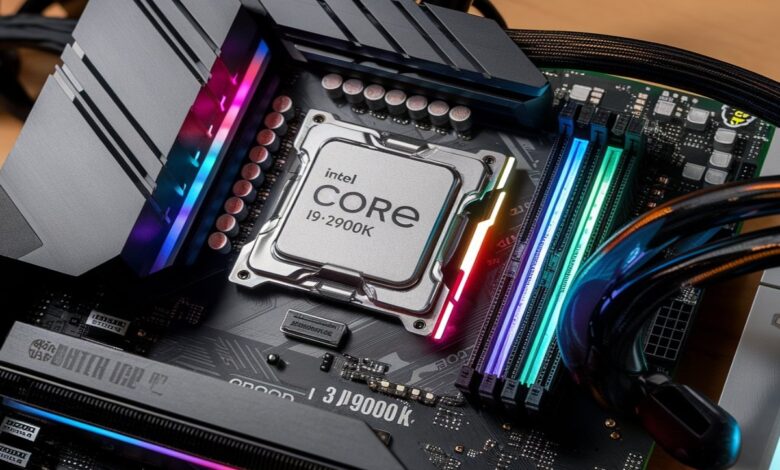Intel 15th Gen Expectations Performance, Features, And Release Date

Intel’s 15th generation processors, the tech industry is buzzing with speculation about their features and performance. Intel has consistently pushed the boundaries of processing technology, and the intel 15th gen is expected to be no different. In this post, we’ll explore what to expect from these processors, including possible advancements in architecture, speed, energy efficiency, and more.
A New Level of Performance: The Core of Intel 15th Gen
Intel’s 15th generation, also known as Intel Arrow Lake, is expected to follow the success of its predecessors by focusing on higher performance and energy efficiency. According to initial reports, these processors could significantly improve multi-threading and single-core performance. This aligns with the tech giant’s push toward offering better computational power for gaming, AI, and productivity tasks.
- Enhanced Multi-Core Performance: Early rumors suggest that the Intel 15th-generation CPUs will offer up to 20% improvement in multi-core tasks. This would be a huge boost for tasks like video editing, 3D rendering, and gaming, where multiple cores can split the workload for faster results.
- Energy Efficiency: Intel’s push toward energy efficiency will likely continue. With laptops and desktops increasingly needing better battery life and lower power consumption, we expect Arrow Lake chips to feature more energy-efficient designs.
Architectural Advancements: Intel 15th Gen at the Cutting Edge
Intel’s architectural changes have been monumental in recent years. The 15th generation may mark another shift, potentially focusing on the Intel 4 process technology, which is based on the 7nm manufacturing process. This allows more transistors to fit on the chip, leading to better performance and efficiency.
Expectations include:
- Faster clock speeds: Reports suggest Intel 15th gen CPUs might support base clock speeds that surpass their predecessors, helping with both single-core tasks and overall system responsiveness.
- Smarter AI integration: AI workloads have been gaining traction, and Intel has been gradually integrating AI-driven features into its chips. This generation is likely to introduce improvements in how processors handle machine learning and artificial intelligence tasks.
The Expected Release Date: Intel 15th Gen Timeline
One of the biggest questions for enthusiasts is when the Intel 15th gen release date is. Though Intel hasn’t officially confirmed a specific date, most rumors suggest the release could happen in late 2024 or early 2025. Intel typically launches new processors once every 18-24 months, which means a 2024 release aligns with their typical schedule.
- Launch Window: Intel could unveil these processors at one of their major yearly events, such as CES (Consumer Electronics Show) or Computex, where they typically reveal their latest technologies.
Gaming and Graphics: A Leap in Performance
For gamers, one of the biggest considerations for new processors is their ability to handle graphics-intensive tasks. The Intel 15th-generation processors are expected to feature improved integrated graphics, thanks to a potential collaboration with Intel’s ARC GPU technology. This could mean better gaming performance without the need for a dedicated GPU.
- Increased frame rates: Gamers could see higher frame rates in AAA titles, as Intel’s integrated graphics continue to improve. With optimized drivers and better CPU-GPU collaboration, gaming could become smoother and more immersive.
- Ray tracing support: If Intel integrates some of its ARC GPU capabilities, ray tracing could become a standard feature in 15th-generation chips, enabling more realistic lighting and shadows in supported games.
AI and Machine Learning Capabilities
AI workloads have become crucial in everything from gaming to photo editing, and Intel’s 15th-generation processors are expected to take this further by improving AI acceleration. AI technologies integrated into the chip could assist with tasks such as real-time image recognition, AI-based enhancements in gaming, and better voice recognition for smart assistants.
- Improved neural processing units (NPUs): These are expected to help handle AI workloads more efficiently, improving everyday tasks and speeding up workflows for content creators and professionals.
- Smarter personal computing: Users can expect more features that anticipate and adapt to their needs, as AI integration helps automate tasks in the background.
Compatibility with DDR5 and PCIe 5.0
With the arrival of DDR5 memory and PCIe 5.0, the Intel 15th-generation processors are expected to be fully compatible with these newer technologies.
- DDR5 support: This will provide faster memory speeds and greater bandwidth, making Intel 15th-generation processors ideal for handling memory-intensive applications.
- PCIe 5.0: This standard will enhance the speed at which the processor communicates with peripherals like GPUs and SSDs, significantly boosting performance.
Power Consumption and Heat Management
One of the expectations for Intel 15th-generation processors is better power efficiency, which translates to less heat production. This improvement could be crucial for laptops and ultrabooks, where managing heat and power consumption directly impacts battery life and performance.
- Improved thermal design: Cooling solutions should become more effective, allowing for thinner and lighter laptops while maintaining high performance.
- Lower power draw: Intel’s focus on reducing power consumption will be ideal for users who prioritize battery life and low electricity use, without compromising speed and performance.
What’s Next for Enthusiasts?
The Intel 15th-generation processors will be ideal for a wide variety of users, from gamers to content creators. With the expected support for cutting-edge technologies like DDR5, PCIe 5.0, and AI integration, this generation of processors will push the boundaries of what’s possible in both desktop and mobile computing.
As we approach the Intel 15th gen release date, more details are likely to surface. Whether you’re looking for enhanced multi-core performance, better gaming capabilities, or energy-efficient solutions for your next build, the 15th gen chips are expected to deliver.
Read Must: Make Your Office Space Stand Out with a Custom Mouse Pad Design
Conclusion
In summary, the Intel 15th-generation processors are set to offer significant improvements in performance, efficiency, and technology support. With an anticipated release in late 2024 or early 2025, these processors could be the cornerstone of next-generation computing, setting new standards for both personal and professional use.




